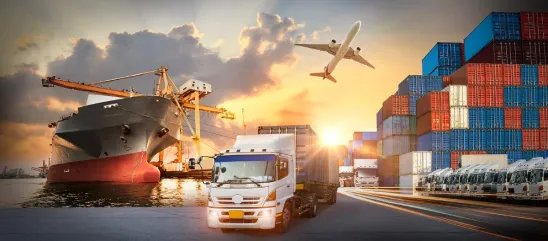In September 2023, select leaders participating in the G20 Summit announced plans to develop the India-Middle East-Europe Economic Corridor (IMEC). The project aims to develop two integrated corridors – one connecting India to the Arabian Gulf, and one connecting the Arabian Gulf to Europe – with new ship-to-rail transit networks, undersea telecommunication cables, and a hydrogen energy pipeline.
While lacking binding agreement at this time, IMEC participating governments – the United States, India, Saudi Arabia, the United Arab Emirates (UAE), the European Union, France, Germany, and Italy – are already touting its potential.
Indian Prime Minister Narendra Modi expects IMEC “will drive sustainable development for the entire world.”
European Commission President Ursula von der Leyen’s 2023 State of the Union address emphasized the shared interest of the participating governments to make trade “faster, shorter, cleaner.” She anticipates that IMEC “will make trade between Indian and Europe 40% faster.”
Saudi Arabia’s Investment Minister Khalid bin Abdulaziz Al-Falih expressed IMEC’s potential “to be more significant and relevant” than the Silk Road “because it’s going to be about new energy, data, connectivity, human resources, aviation routes, and it’s about aligning countries that are of the same mind and same vision.”
As proposed, IMEC could be a boon for the United States, which has long sought to counter the Belt and Road Initiative (BRI) launched by the People’s Republic of China in 2013. The IMEC announcement builds on the G7’s June 2023 pledge to raise $600 billion in private and public funds over five years for infrastructure projects in developing countries to counter BRI, and according to U.S. President Joe Biden demonstrate “the concrete benefits of partnering with democracies.” IMEC’s objective to facilitate hydrogen energy transports also aligns with the United States and EU’s broader strategic interest to transition Europe away from Russian fossil fuels.
Still, few details on IMEC are available. The IMEC signatory governments will spend the next 60 days developing an action plan, including to set timing benchmarks and to establish standards on financing and regulation, among other topics. IMEC is an exciting and visionary proposal. As Governments develop their action plan, there are a few key questions that should be considered, including:
How will leaders ensure IMEC’s continuity and durability?
The G-20 operates without a permanent secretariat or staff. Responsibility for organizing and coordinating annual meetings generally falls on the host government, which rotates from year to year. India is the current chair, to be followed by Brazil in 2024, and the United States to follow in 2025. With no permanent G-20 secretariat, what institutional mechanism should exist, if any, to carry IMEC forward?
How can the private sector effectively engage in the development of IMEC during the next 60 days and beyond?
Private sector engagement will be essential to IMEC’s success. Today however, there is no mechanism for the private sector to engage, either formally or informally. Hopefully, participating governments will soon empower their current inter-agency structures to serve as conduits for policy formulation during the initial 60-day planning period. To be most effective however, a permanent and transparent process should be established to maximize private sector engagement.
What public sector resources will be available to appropriate fund and leverage public-partnerships?
Government financial support and incentives could play an important part in driving private capital’s active participation in IMEC. While a variety of government agencies and international institutions could assist, there is currently no dedicated funding available. Given the large capital investments that will be required to make IMEC a success, establishing dedicated funding should be a priority.
What role will the U.S. Congress play?
Like ancient Rome, IMEC will not be built in a day and will require broad long-term political support. Because 2024 is a Presidential election year in the United States, the Biden Administration should engage Congress as quickly as possible, so that the United States support continues regardless of the outcome of the Presidential election.
How should the private sector leverage IMEC as part of their de-risking strategies?
As geopolitical tensions between the China and the United States continue, many companies are looking for ways to mitigate their risk of overexposure to the Chinese market. IMEC can play an important role in further developing these strategies so companies should be playing close attention to its development.
Private sector involvement and investment will be critical to IMEC, and in particular to distinguishing it from BRI. IMEC will attract a wide range of innovative and critical industries to build, support, and build hubs around key points on the IMEC corridor.







 />i
/>i

